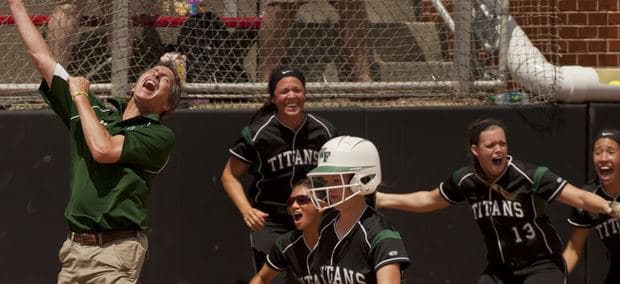If you teach long enough in the public schools, you will be fortunate enough to come across some great individuals who coach sports teams all the while teaching these very athletes lessons of life and success even in the wake of defeat.
When winning seems to be the only criteria by which many measure the success of a team, a great coach understands that winning is much more than a final score. That “W” in the “win” column is the culmination of a process by which young people are pushed, nurtured, taught, challenged, and built. That same process is the part rarely seen in the media or by the fans.
In a world where statistics are obsessed over by not only fans and players, but also parents and scouts, great coaches see that as secondary to the chemistry of the team. When people squabble over playing time and egos, great coaches see that team is more important than one individual.
When a team wins, great coaches give the players credit. When a team loses, great coaches look at themselves as the first to be accountable and find ways to help the team reflect on those losses. Why? It’s part of the process.
Great coaches see the team as more powerful than the sum of its parts put together because building a community where a common goal drives the participants is part of that process of being successful. Great coaches praise players in public, encourage loudly, and practice discipline leaving constructive criticism behind closed doors in locker rooms, practice, and dugouts.
Great coaches care about their players as students. It is often that I tell people who do not teach that so many players perform better academically in my classroom while in season than out of season. The time management and the added incentive to keep playing helps many students make the needed commitment to academics and family.
Great coaches have probably kept so many students out of trouble because spending time being mentored and coached negates opportunities to be involved with conflict.
Great coaches are probably one of the more stable influences in the lives of many student-athletes who experience flux in their homes and personal lives. These great coaches become role-models, confidants, and advocates.
Students do not just earn “letters” for football, basketball, and baseball. Think of cross-country, track, lacrosse, swimming, volleyball, softball, and soccer among others. Each has a coaching staff who works with students to make them better people.
Let us not forget that most of these great coaches are teachers in the same schools where they coach. They teach across a variety of disciplines — even Advanced Placement classes. They take care of our students in so many ways. And if they were actually paid an actual living wage for the time they spend preparing players, mowing fields, cleaning courts, talking to media and parents, and other unseen duties, they would be walking home with a much larger paycheck. But they still do it. Why? Because it is for the kids.
If you want to witness what the effect that a great coach can have on a school and its surrounding community, then go to the games or the matches, see the support, watch the passion of the players, and see the pride of the student sections. Roam the hallways on game day and witness the players wear their jerseys or team apparel that showcase their commitment to represent the school on the athletic field. That is pride in school and pride in community. That starts with a great coach.
And if you go to a game or match gladly pay for the ticket. Any money made from a high school athletic contest goes straight back into an investment in our kids. The return on investment is huge and immediate.



